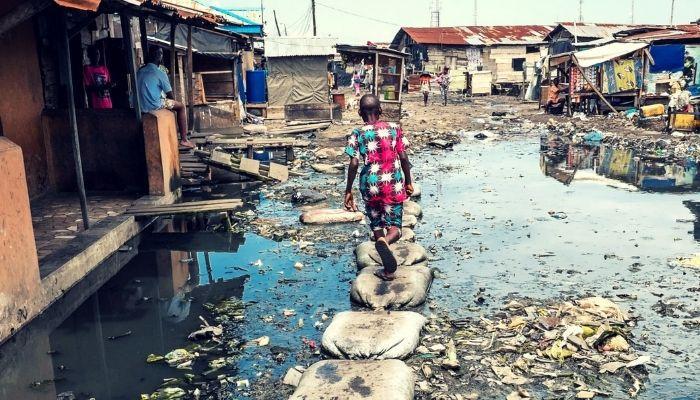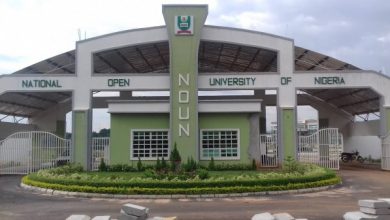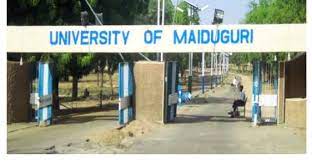
10 Factors Affecting Development In Nigeria
Nigeria is a country located in West Africa, known for its diverse culture, rich history, and abundant natural resources. In recent years, Nigeria has experienced significant economic growth and development, driven by a growing population, a rapidly urbanizing society, and an expanding middle class.InformationGuideNigeria
Despite this progress, the country continues to face significant challenges, including high levels of poverty, unemployment, and inequality, as well as ongoing conflict and security concerns in the northern and southeastern regions.10 Factors Affecting Development In Nigeria
👉 Relocate to Canada Today!
Live, Study and Work in Canada. No Payment is Required! Hurry Now click here to Apply >> Immigrate to CanadaDespite these challenges, Nigeria remains an important player in the African continent and the global economy and continues to be a focus of attention and investment from governments, businesses, and development organizations around the world.
Read Also: 10 Factors Affecting Climate In Nigeria
What is Development?
Development refers to the process of improving or expanding upon something, such as the development of a new technology or the development of a country’s economy. In the context of biology, development refers to the process by which an organism grows and changes over time. In the context of psychology, development refers to the process by which a child’s mind and abilities grow and change over time.
Read Also: 10 Factors Affecting Christian Unity In Nigeria?
Types of Development in Nigeria
There are several types of development in Nigeria, including:
- Economic Development: This refers to the process of improving the economic well-being and quality of life of a community or country. In Nigeria, this includes efforts to diversify the economy, create jobs, and reduce poverty.
- Social Development: This refers to the process of improving the social well-being and quality of life of a community or country. In Nigeria, this includes efforts to improve education, healthcare, and access to basic services such as clean water and sanitation.
- Infrastructure Development: This refers to the process of building and maintaining the basic structures and facilities needed for a community or country to function. In Nigeria, this includes efforts to improve transportation, communication, and energy systems.
- Human Capital Development: This refers to the process of investing in people to improve their skills, knowledge, and productivity. In Nigeria, this includes efforts to improve education and training opportunities for citizens.
- Environmental Development: This refers to the process of improving the natural environment and reducing the negative impacts of human activity. In Nigeria, this includes efforts to protect natural resources, reduce pollution, and mitigate the effects of climate change.200 Romantic Love Message
- Political Development: focused on strengthening the country’s democratic institutions and promoting good governance.
Read Also: 10 Factors Affecting Press Freedom in Nigeria
Advantages of Development in Nigeria
Some potential advantages of development in Nigeria include:
- Natural Resources: Nigeria is rich in natural resources such as oil, gas, and minerals, which can be a major source of revenue for the country. The oil and gas sector, in particular, is a major contributor to the Nigerian economy. The country is the largest oil producer in Africa and a major exporter of crude oil. This revenue can be used to fund public services and infrastructure projects, as well as to attract foreign investment.
- Large Population: Nigeria has a population of over 200 million people, which makes it the most populous country in Africa. This large population provides a vast market for businesses and industries, which can lead to increased economic growth and development. With a large population, the country can also have a large workforce that can fuel economic growth and development.10 Best Distance Learning University In Nigeria
- Strategic Location: Nigeria is located in West Africa, which makes it a hub for trade and commerce in the region. The country has access to the Atlantic Ocean and is well-positioned to act as a gateway to other West African countries. This strategic location can be leveraged to attract investment and trade, which can drive economic growth and development.
- Diversified Economy: Nigeria has a diversified economy with a growing services sector, which can provide a buffer against fluctuations in commodity prices. The services sector includes areas such as banking, telecommunications, and retail. This diversification can help to reduce the country’s dependence on oil and gas exports and make the economy more resilient to external shocks.NYSC Portal
- Government Initiatives: The government is making efforts to improve the ease of doing business in Nigeria, to support economic growth and development. This includes reducing bureaucracy, improving infrastructure, and providing incentives for foreign investment. These initiatives can help to attract investment and create jobs, which can boost economic growth and development.
Read Also: 15 Factors Affecting Completion of Childhood Immunization in North West Nigeria
👉 Relocate to Canada Today!
Live, Study and Work in Canada. No Payment is Required! Hurry Now click here to Apply >> Immigrate to CanadaWhat are the Factors affecting Development in Nigeria?
Some factors affecting development in Nigeria include:
- Corruption: Nigeria has a history of corruption in government, which has hindered its ability to effectively use its resources for development.105 Good Morning Love Messages
- Lack of Infrastructure: Nigeria’s infrastructure, including transportation and energy systems, is inadequate and in need of significant investment.
- Economic Instability: Nigeria’s economy is heavily dependent on oil exports, and fluctuations in oil prices have led to economic instability.
- Poverty: A significant portion of the population lives in poverty, which can make it difficult for individuals to access education, healthcare, and other services necessary for development.
- Conflict: Violence and conflict, particularly in the northern region, have disrupted economic activities and hindered development.JAMB Portal
- Inadequate Education and Healthcare System: Nigeria’s education and healthcare systems are inadequate, which makes it difficult for the country to develop a skilled workforce and improve the overall health and well-being of its population.
- Environmental Degradation: The country is facing environmental degradation in various forms, such as deforestation and desertification, which affects the livelihoods of many people and poses a hindrance to development.
- Dependence on Foreign Aid: Nigeria has historically been dependent on foreign aid to support its development, which can limit its ability to make long-term, sustainable development plans.
- Lack of Good Governance: Nigeria has long been struggling with issues of bad governance and lack of transparency, which has led to mistrust and apathy among citizens and hindered the country’s ability to make progress.50 Best Universities In Nigeria To Study Petroleum Engineering
- Insecurity: Nigeria is facing multiple security challenges, such as terrorism, banditry, kidnapping, and ethnic clashes, which affect the ability of people to move around, work and do business, hindering development.
Read Also: 10 Factors Affecting Quality Education in Nigeria
Conclusion
Nigeria faces several challenges that affect its development, including poor governance, inadequate infrastructure, poverty, unemployment, and inadequate access to education and healthcare. Political instability, corruption, and dependence on oil as the main source of revenue also hinder development in the country.
To overcome these challenges and promote sustainable development, it is necessary to address these issues through policies and programs that promote good governance, diversification of the economy, improvement of infrastructure, and access to education and healthcare. Long-term investments in these areas can help Nigeria achieve its full potential and improve the lives of its citizens.
Check JAMB Result
Check and Confirm: How much is Dollar to Naira








